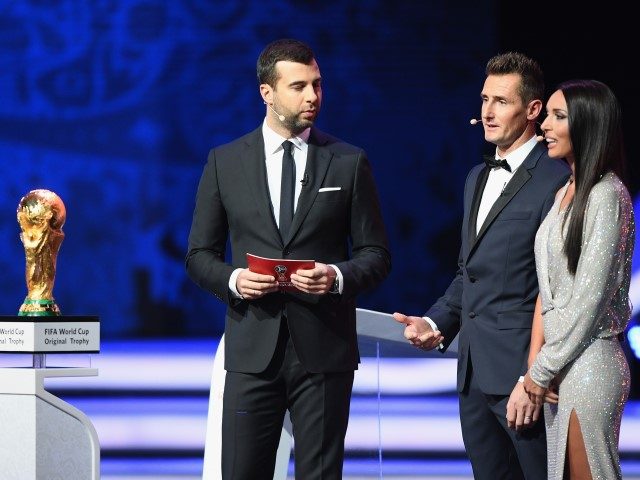Several Russian celebrities — who operate within Russia’s largely state-owned entertainment industry — risked a potential exposure ban by state media this week through their public protest against Russia’s invasion of Ukraine on Thursday, Fortune magazine reported.
“Russia’s entertainment industry is largely state-owned, and while no celebrities have criticized [Russian President Vladimir] Putin by name, their outcry could lead to bans from any exposure on state media,” the business-focused magazine observed on February 24.
Russian pop star Valery Meladze denounced Russia’s military aggression in Ukraine through a video message he shared with his 50,000 Instagram followers on February 24.
“Today something happened that could and should never have happened. History will judge everything one day. Now I want to beg you to stop military action and sit down to negotiate,” Meladze said in the video clip.
“Fear and pain. NO to war,” Russian television host and comedian Ivan Urgant (above, left) wrote in a caption accompanying a black square posted to his Instagram account on Thursday.
“We are now all trapped in this situation. There is no exit. We Russians will spend many years digging out from the consequences of this day,” Russian television presenter Ksenia Sobchak wrote in a post shared on her Instagram account on February 24.
“Some figures in Russia’s cultural scene have gone as far as to preemptively quit their jobs as a sign of protest,” Fortune, which is based out of New York City, reported on Thursday.
The magazine cited the example of Yelena Kovalskaya, the director of the Russian state-owned Meyerhold Theater Center in Moscow.
Kovalskaya announced her resignation through a statement shared on her Facebook page on February 24, writing, “It is impossible to work for a murderer and receive salary from him. I will finish the work I’ve started, but without pay.”
“The Meyerhold Theatre is one of several state-run theaters in Russia, many of which were inherited from the Soviet Union (although the Meyerhold was established in 1999). The state provides almost all of the funding, with artistic staff and actors as employees on payroll,” the website theatermania.com noted on February 25.
Kovalskaya’s resignation via Facebook, a U.S.-based social media platform, came one day before Russia’s government announced on February 25 it would “partially restrict access” to Facebook within Russia in response to the platform’s censoring of Russian state media.
Russia’s Federal Service for Supervision of Communications, Information Technology and Mass Media (Roskomnadzor) said it made the choice in response to Facebook’s decision on February 24 to impose restrictions on four Facebook accounts run by the following Russian state media outlets: “Zvezda TV channel, the RIA Novosti news agency, and the Lenta.ru and Gazeta.ru Internet sites.”
“Such actions in relation to Russian Internet resources and the media are prohibited by Federal Law No. 272-FZ ‘On Measures to Influence Persons Involved in Violations of Fundamental Human Rights and Freedoms, Rights and Freedoms of Citizens of the Russian Federation,'” a statement issued by Roskomnadzor on Friday read.
Russia’s military invaded Ukraine in the early morning hours of February 24 following an announcement on February 21 by Moscow that the Kremlin would officially recognize two Russian-backed separatist states in eastern Ukraine’s Donbas region.

COMMENTS
Please let us know if you're having issues with commenting.